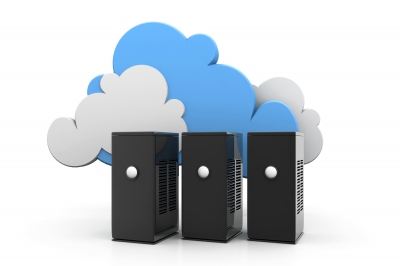While both public and private clouds may have earned more of the spotlight, hybrid clouds have been garnering increased business interest as of late. Hybrid clouds offer the benefits of public and private clouds and may be an ideal model for companies that have interest in the cloud, but have not found an existing infrastructure to meet their needs. While hybrid clouds have advantages and disadvantages, they may be the ideal business solution for companies needing more flexibility in technology deployment. Learn more about how the three cloud types operate to determine whether your enterprise needs may be met by the cloud.

Understanding Hybrid Clouds
Public clouds provide a shared cloud infrastructure, where your enterprise data sits on the same server as data from other businesses. While this is affordable, it can leave your data vulnerable to security hacks, should a hacker gain access to any business’s data on that server. By contrast, a private cloud servers only your business’s data, using firewalls and other security measures to safeguard data.
Hybrid clouds, which come in four different architecture models, straddle these existing setups. Static placement clouds assign some resources to public clouds and some to private. At present, this is the most common hybrid clouds model. Assisted replication models allow data to be moved between public and private clouds. Auto migration allows data to move, with human intervention or automation, from a public to private clouds. Dynamic migration moves resources seamlessly, for greater flexibility.
Use cases for Hybrid Clouds
Hybrid clouds can support a wide range of business functions. These five use cases demonstrate the power of a hybrid cloud:
- Data-Driven Insights
They may come in handy for a “self-service” model of business intelligence, where users can browse the clouds for business insights.
- Preserving Legacy
As legacy applications and systems age, businesses may not be able to find a replacement. The hybrid cloud can run these legacy applications, enabling business to proceed as usual.
- Reduce Costs
By migrating in-house servers to a cloud model that includes hybrid clouds, businesses can save money.
- Extend Models
Businesses that rely on many disparate technologies to perform their duties may enjoy using the hybrid cloud for more efficient workflow.
- Explore and Innovate:
Companies may want to test out new and trending concepts, like big data analytics, but be reluctant to dedicate server space to these tasks. The hybrid cloud offers a secure portal for innovation.
As these use cases demonstrate, the ability to move workloads between different clouds is a helpful and necessary tool for the IT professional. Dedicated servers are expensive, have a large physical footprint and require a lot of upkeep. Hybrid clouds offer a viable alternative to the traditional model, while giving businesses room to expand and to transfer data without the fear of loss or breakdown. These are just some of the ways you can use hybrid clouds to manage employee workflow and preserve enterprise data.
If business is undergoing another major change, such as a physical move to a new location or a departmental restructuring that will shift job duties, it is also a good time to switch computing strategies and migrate to the cloud. A well-planned, well-thought-out cloud migration will ease IT woes without causing serious disruptions to employee workflow.


























